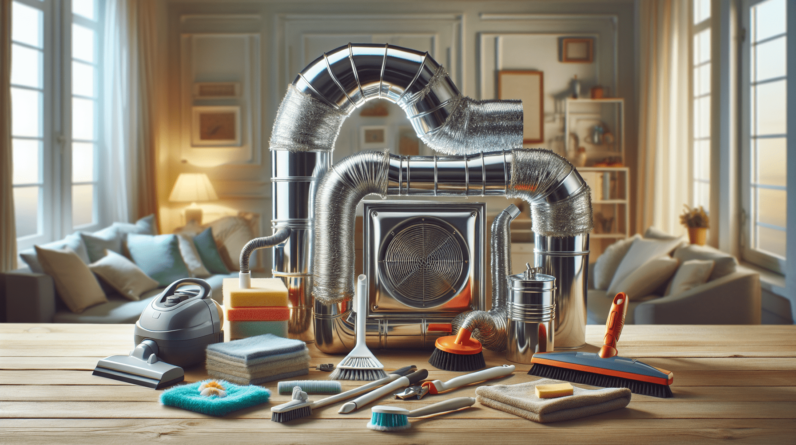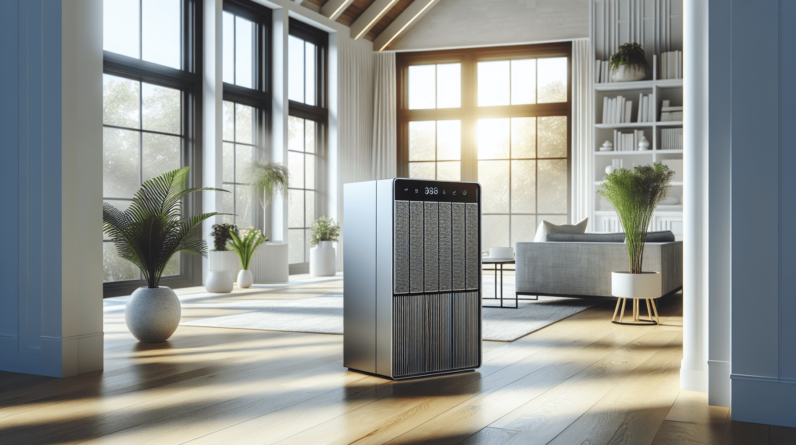
Have you ever found yourself sweating in the summer or shivering in the winter, wondering if your HVAC system is working as it should? You’re not alone. Many homeowners in Houston, TX, face common HVAC problems that can lead to discomfort in their homes. The good news is that you can troubleshoot and even solve some of these issues on your own.
Understanding HVAC Systems
Before jumping into troubleshooting, it’s essential to understand what an HVAC system consists of. HVAC stands for Heating, Ventilation, and Air Conditioning. Each component plays a vital role in creating a comfortable living environment.
The Basics of HVAC Components
-
Heating Unit: This typically includes a furnace or heat pump responsible for heating your home.
-
Cooling Unit: Most often, this is your air conditioning system that cools the airflow in your living space.
-
Ventilation System: Responsible for maintaining indoor air quality, the ventilation system helps bring in fresh air and expel stale air.
-
Thermostat: This is the control center of your HVAC system, where you set your desired temperature.
Understanding these components will help you identify the source of your HVAC issues more effectively.
Common HVAC Problems
Let’s discuss some typical HVAC problems you may encounter and how to troubleshoot them.
Lack of Heating or Cooling
If you’re not getting enough heating in winter or cooling in summer, it could stem from different sources.
Possible Causes
- Thermostat Issues: The thermostat may be programmed incorrectly or broken.
- Dirty Filter: A clogged air filter can restrict airflow.
- Refrigerant Levels: Low refrigerant levels may cause your AC to blow warm air.
Troubleshooting Steps
- Check the Thermostat: Ensure that it’s set to the correct mode (heating or cooling) and temperature.
- Replace the Filter: A clean filter can improve airflow drastically. Check the manufacturer’s specifications for how often to replace it.
- Inspect Refrigerant Levels: If the air conditioner is blowing warm air, consider calling a professional to check the refrigerant levels.
Strange Noises
Unusual sounds from your HVAC system can be alarming. They often indicate issues that need attention.
Possible Causes
- Loose Parts: Components may have come loose over time.
- Debris: Leaves, dirt, or other debris may be obstructing the fan.
- Motor Problems: A malfunctioning motor may create unusual noises.
Troubleshooting Steps
- Listen Carefully: Try to identify when the noise occurs. Is it during startup or shutdown, or is it ongoing?
- Inspect for Obstructions: Turn off the system and check for any visible debris in or around the unit.
- Check for Loose Parts: Gently tap the panels and listen for rattling that may indicate loose screws or components.
Poor Airflow
If you notice that the airflow is weak or inconsistent, your home might not be getting the temperature it needs.
Possible Causes
- Blocked Vents: Furniture or other obstructions may be blocking your vents.
- Duct Issues: Duct leaks or blockages can affect airflow throughout your home.
Troubleshooting Steps
- Inspect Vents: Make sure all vents are opened and unobstructed. Remove any furniture or items blocking them.
- Examine Ducts: If you’re comfortable, inspect readily accessible ducts for signs of leaks or blockages.
- Check System Size: If airflow issues persist, consider whether your system is appropriately sized for your home.
Frequent Cycling
If your HVAC system turns on and off more frequently than usual, it may indicate a problem.
Possible Causes
- Thermostat Placement: A thermostat placed in direct sunlight can cause it to sense incorrect temperatures.
- Dirty Filter: As mentioned earlier, a dirty filter can restrict airflow and lead to frequent cycling.
Troubleshooting Steps
- Reposition the Thermostat: If possible, move the thermostat to a more neutral location away from direct sunlight.
- Change the Filter: Regular filter changes can help keep your system running smoothly and may eliminate rapid cycling.
Foul Odors
Strange odors emanating from your HVAC system can be not only unpleasant but also alarming.
Possible Causes
- Burning Smell: This may result from dust burning off the heating elements or a mechanical issue.
- Musty Odors: Mold or mildew may be present in the ductwork or on the filter.
Troubleshooting Steps
- Investigate the Source: If you smell a burning odor, turn off the system and inspect for any obvious sources of fire or mechanical wear.
- Check for Mold: If musty smells linger, consider checking your filter and ducts for signs of mold growth. Replace any dirty filters.

When to Call in a Professional
Not every HVAC problem is one you can fix on your own. Sometimes, it’s necessary to call a professional technician.
Signs You Need Professional Help
- Refrigerant Leaks: If you suspect refrigerant leaks, it’s crucial to call a professional as it requires specialized tools and knowledge to handle.
- System Age: If your system is old and frequently breaking down, it might be more cost-effective to replace it entirely.
- Complex Repairs: If the issue seems complicated or you’re not comfortable troubleshooting, it’s best to seek professional assistance.
Preventative Maintenance: Your Best Ally
Once you’ve addressed any current issues, consider preventative measures to keep your HVAC system running smoothly.
Scheduling Regular Inspections
Regular HVAC maintenance can help spot problems before they become expensive repairs. Aim for maintenance checks at least once a year for both heating and cooling systems.
DIY Maintenance Tips
-
Change Filters Regularly: A good rule of thumb is to change the air filter every 1 to 3 months, depending on usage.
-
Keep Outdoor Units Clean: Make sure the area around your outdoor unit is free of debris and vegetation. It should have at least two feet of clearance.
-
Check Insulation: Make sure your home is adequately insulated to help your HVAC system function more efficiently.
Conclusion
Troubleshooting common HVAC problems can save you time and money, allowing you to maintain a comfortable living environment. By understanding your HVAC system and following the steps outlined, you can effectively address many issues. Be proactive about maintenance, and don’t hesitate to call in an expert when needed. Your comfort is worth it!








